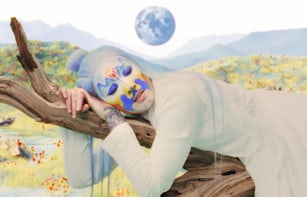Alain Resnais and Marguerite Duras, Isaac Julien, Chantal Akerman, Raoul Peck, Zarina Bhimji, Amar Kanwar, Pier Paolo Pasolini & Hannah Arendt; Seyla Benhabib; Stuart Hall; Michael Hardt and Antonio Negri; Frantz Fanon; Paul Gilroy; Chantal Mouffe; Edward Said; Peter Weiss; Cornel West
In her life’s work on political thought, German philosopher Hannah Arendt questioned the origins of violence and authoritarianism. Amor mundi (love of the world) – an early possible title for The Human Condition (1958) – is at the core of this thinking. In her journal she once asked: ‘Why is it so difficult to love the world?’ 1 To look at it differently, we could ask the question in reverse: ‘Why is it so easy to hate the world?’ It often seems that any path that prioritises love, justice, respect and the defence of dignity for all life can only be forged through constant struggle, while a path that reproduces hate and violence is already there in front of us. We have lived through many vicious cycles of violence in human societies, which have generated an established, systemic violence. What is it possible to do within human power?
This 50th edition of Afterall responds to the situation created by Covid-19 – a consequence of humanity’s treatment of its environment and other species. The pandemic has also boldly highlighted entrenched socio-economic inequalities. Artists, however, have long been engaged in making such ‘invisible’ issues visible – a major reason art plays such a fundamental role in societies. For this piece, we juxtapose seven moving-image artworks that dwell on systemic violence and oppression, with excerpts from texts by philosophers and theorists who offer new perspectives on these issues and generate much needed discourses for a movement towards global equality.
Afterall was born some twenty years ago, at a time when cultural studies was at a global peak. The field had strong roots in the UK since the 1980s through the Centre for Contemporary Cultural Studies at the University of Birmingham, founded in 1964. BBC Four was then promoting multiculturalism as the ‘new paradigm’ for Britain, which accordingly understood and constructed itself as a multicultural society. This didn’t happen without struggle and negotiation, of which one of the leading voices was that of the late cultural theorist Stuart Hall. He describes the overall context in which he found himself at the time as that of a Familiar Stranger. A public intellectual and spokesperson of the Windrush generation – those arriving from the ex-colonies of the Caribbean to the UK between 1948 and 1970 – Hall influenced many young artists and practitioners, including Isaac Julien, then a young painting and film student.




